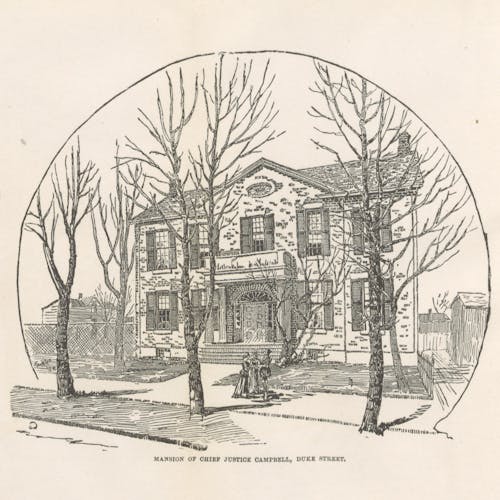Should I Buy a Home?
- InvestmentsIf you’ve been thinking whether you should buy a home, you’re not alone. It was a very popular topic in my practice, and it seems like a hot topic out in the webiverse, too.

The pandemic has shone a new light on homeownership as more and more organizations allow remote work, and employees are taking them up on it by buying a home where they prefer to be. The US homeownership rate has been steadily increasing since bottoming out in 2016.
And despite all the press hoo-ha about Millennials not being able to afford to buy homes, it seems they are doing so more than ever before: they make up the largest share (37%) of the total US housing market and are also the fastest-growing generation of buyers. They are buying their homes later in life than their Boomer parents, but they’re doing it.
Don’t get me wrong here; the pandemic has also massively jacked up a lot of people’s chances at buying a home, at least for a while. But if you’ve made it to this point and are still in a position to think about it, read on. And hey, even if you’re not really interested in homeownership or you already own a home, you might find something here to support your decision or change your mind.
As you might expect, there are a number of ways to look at a decision like this. There are financial factors, of course, but there are also lifestyle and personal factors to take into account. Like pretty much any “financial” decision, it’s not all about the money.
But let’s start with the money. What are all of the financial considerations around buying versus renting, and how can we evaluate them?
1. First, I’m afraid, you need a financial life plan. The best way to see the long-term impact of owning versus renting is to put both options into a financial independence model and compare them. These models can give you numbers like your total assets over time and your likelihood of running out of money before you die. If one option improves your total financial picture over the other, that’s valuable information.
2. The second key piece of information you need is whether you can even afford to buy a home, and if so, how much you can afford. There are dozens of calculators out there to help you do this, and they factor in variables like how much debt and other expenses you have every month, along with all the costs associated with buying. Please note that most of these calculators will say 30% of your monthly income is an affordable housing payment, but stop and think about it. Is 30% comfortable for you? If not, what is? Don’t just accept the rule of thumb.
3. You’ll want to assess whether renting or buying is more advantageous in terms of total cost over time. There are also dozens of calculators out there to help you with this comparison. You’ll be comparing the total cost of buying (mortgage payment, interest, closing costs, down payment, ongoing maintenance and repairs, HOA fees, renovations, property tax, insurance, and so forth) against the total cost of renting (rent and average annual increases, insurance, and security deposit).
a. As you can see, there are a LOT more up-front and ongoing costs involved in owning a home than there are when you rent. First, you have the outlay for your down payment and closing costs when you buy a home. You are also responsible for all of the ongoing costs of homeownership unless you live in a condo or townhome, and then you pay HOA dues to cover those costs, anyway. Make sure you account for everything when you estimate your total costs, including appliances that break, new sod, water leaks, and the time it’s going to take you to scrape off all that Victorian wallpaper.
b. One advantage of buying a home is that your mortgage and interest payments stay fixed over time (as long as you get a fixed-rate mortgage, and why wouldn’t you since interest rates are so low?). In reality, this means that you are paying less and less in mortgage and interest over time because of inflation. The $2000 you pay the mortgage company today will be worth about $1100 in 30 years, assuming an average annual inflation rate of 2%!
c. In general, the longer you stay in one place the more advantageous it is to buy a home, because the ongoing inflation in rent will eventually catch up to all the up-front and ongoing costs of buying. Take a look at that break-even point and think about whether you want to stay in one place that long.
d. It matters where you live. In “normal” markets, rent can be more predictable than in hot, low-inventory markets. In those hot markets, steep rent increases can be avoided with a mortgage.
4. You may get a tax break due to your mortgage interest. Most homeowners can deduct all of their mortgage interest from their taxes, but if you’re not itemizing deductions it doesn’t really matter. You must be paying enough mortgage interest (and have enough other itemized deductions) to make it worth itemizing rather than just taking the standard deduction. The value of the mortgage interest deduction also decreases over time because the interest is front-loaded into the earlier years of your mortgage. Yes, you heard me correctly there.
5. You get a break on capital gains tax when you sell a home. This may not make or break your decision, but when you sell your home you can make up to $250k in profit ($500k for couples filing joint taxes) and not pay any capital gains tax on it.
6. Finally, a home can be an investment which helps you build wealth over time. In some respects, a mortgage is forcing you to save by paying into a bucket of equity every month for 30 years. At the end of those 30 years, you own the equity in that home and you have all the benefits associated with that asset. If you’re fortunate, its value appreciated by leaps and bounds over time. If you’re around the US average, its value appreciated by about 3% to 5% a year and also provided some diversification to your investment portfolio.
But are you going to sell that home? If not, you won’t have access to the equity unless you take out a mortgage against the value of your home. But that home is still a paid-off place for you to live as long as you can still get around, even if it's not a source of cash. It can also be a nice nest egg if you do ever want to sell it and move to Del Boca Vista Active Adult Community, for example. Or you can leave it to someone else when you die.
Just be aware that it could all come to naught and your home could lose value over time, too. It’s a risk you’ll have to take as a homeowner. Are you up for it?
Which brings us to the lifestyle and personal factors involved in the buy-versus-rent decision. The way you look at life will impact the decision process, too. Here are some of those “softer” considerations:
1. How do you feel about being a homeowner? What have you been taught to believe about being a homeowner? Just because a white picket fence has been someone else’s dream, it doesn’t have to be yours. Maybe you have like to move around a lot, or you don’t want the responsibility and potential liability of owning home. On the other hand, maybe you welcome the chance to stay in your beloved location for the long term and you think of owning a home as an investment in your future. Either way, the important thing is to be clear about what you want and why you’re choosing one over the other.
2. Do you need to make the rules in your home? If you want to be able to paint your walls purple and have a pot-bellied pig, homeownership might be for you. Apart from any HOA rules you might be living under, you get to make all the decisions about your home if you own it. But if you don’t mind some restrictions around personalization and pets, renting is fine.
3. How do you feel about debt? Friend, there is no rule saying you have to have a mortgage. There may be norms and expectations, but you don’t have to accept them. Is a home a “good” debt? Is there such a thing as “good” debt? You are the one who will need to answer those questions for yourself.
4. How do you trade off stability against freedom? If you own a home, you can stay there as long as you pay the mortgage and property tax. You also get stable schools for your kids (if you have them). If you’re renting, you might have to move unexpectedly if the owner decides to sell. On the other hand, if you need to move a lot for work or you just like the freedom to move anytime you want, renting may be for you. Just be aware that a lease can also keep you stuck for a period of time.
5. Do you want to invest in real estate? Maybe you don’t even think of a home as an investment; for you, it symbolizes security, stability, and roots. That’s fantastic. But if you think about owning a home as an investment, is it an investment you want to make? Would you prefer to put your money into other investments which might deliver better returns? As I mentioned above, the average US home value grows about 3% - 5% a year over the long term, compared with US stocks, which grow at about 10% a year. If you prefer the stocks, though, you actually need the discipline to save and invest the money you’re not spending on homeownership. You’ll need to invest all those extra dollars which would have gone toward your mortgage, interest, repairs, remodeling, HOA fees, property taxes, and insurance.
a. Are you really “throwing away money every month” by renting? Not necessarily. You will always need a place to live, and this is always going to cost you money in some way. The amount of equity you’re able to build in your home over time will depend on the value of that home over time…and it could go down. In addition, some of the costs of owning a home don’t actually create equity, such as property tax, insurance, mortgage interest, getting your trash picked up, and paying for water and sewer service. Don’t feel pressured to buy a home because someone has told you you’re wasting money on rent.
Finally, whether renting or buying is best for you, it’s always good to think deeply about what a home means to you when you’re searching for a new place to live. In the interest of your financial health, don’t go overboard. Find a home that is right-sized for you, affordable for you, and maintainable by you, whether you rent or buy. Resist the temptation to keep up with The Joneses, because those poor people are broke AF and in debt up to their designer sunglasses. Don’t live in a home with empty rooms that you need to fill with empty objects. As The Minimalists say, “The stuff doesn’t make it your home—you do.”



